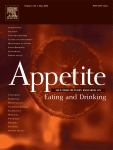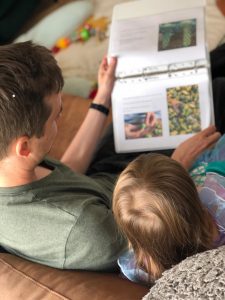
Roselinde van Nee (ESR4) published her first PhD paper in collaboration with her supervisors Ellen van Kleef and Hans van Trijp. The paper is about preadolescents’ healthy food consumption at schools in the Netherlands. A total of 142 preadolescents (on average 12 years old) and 81 parents completed questionnaires. Making independent food choices To what…

Julia Sick (ESR3) recently published a paper on the meaning of emoji to describe food experiences in preadolescents in the journal Foods. The paper was in collaboration with Erminio Monteleone, Lapo Pierguidi, Sara Spinelli (University of Florence) and Gaston Ares (Universidad de la República in Uruguay). The paper has open access and can be found…

Research suggests that children can use sensory temporal methods to describe visual stimuli, but refinements are needed for the characterization of food products. Ana Laura Velázquez Universidad de la República Uruguay There is no doubt that children’s input is essential to develop successful healthy products. Sensory methods need to be adapted to children’s cognitive abilities…

Abigail Pickard (ESR10) recently published a paper on the relationship between food rejection and thematic knowledge of food in young children in the journal Frontiers in Psychology. The paper has open access and can be found here Young children often reject foods because they feel unfamiliar with the food itself or the food situation. Having…

One of the early stage researchers (ESRs) in Edulia, Abigail Pickard in the cognitive science research team at Institut Paul Bocuse Research Center, received a Policy Research award from the Society for Research in Child Development committee during the 2021 biennial meeting. The subject of her poster presentation was: “Strawberries and cream: The relationship between young…

Edulia partner Institut Paul Bocuse Research Center will organises a webinar the 29th of April on cognitive and social variables modulating food rejection (or acceptance) in children. Food acceptance and rejection depend on multiple factors. In this webinar, researchers will present their ongoing projects on the influence of food processing and transformation (D. Foinant,…

From March until May 2020, a first strict lockdown took place in France to limit the spread of the highly contagious coronavirus SARS-CoV-2. Schools were closed and working from home was enforced, which had a profound impact on families’ habits. ESR7, Kaat Philippe, and her colleagues conducted a study with 498 French families to investigate…

ESR8 Andreia and her supervisor, Jessica Aschemann-Witzel developed a storybook to increase children and fathers’ willingness to try new vegetables and spices. The book is a strategy to address barriers for healthy eating among Danish families. In previous investigation Danish mothers indicated child’s and partner’s resistance to try new vegetables as a constraint for a more varied diet…

On February the 4th, Edulia organised a webinar on children and healthy eating in with invited speakers from the CO-Create project run by the Norwegian Institute of Public Health (NIPH), the University of Oslo and the University of Copenhagen. In addition four of the EARLY STAGE RESEARCHERs presented their research. The webinar was divided into…

Fifteen Danish families are taking part in “My daddy is a food explorer” – a food intervention for fathers&kids. In previous investigation Danish mothers indicated child’s and partner’s resistance to try new vegetables as a constraint to a more varied diet in the household (Moura & Aschemann-Witzel, 2020). “My daddy is a food explorer” is an attempt to make healthy eating easier and more…










